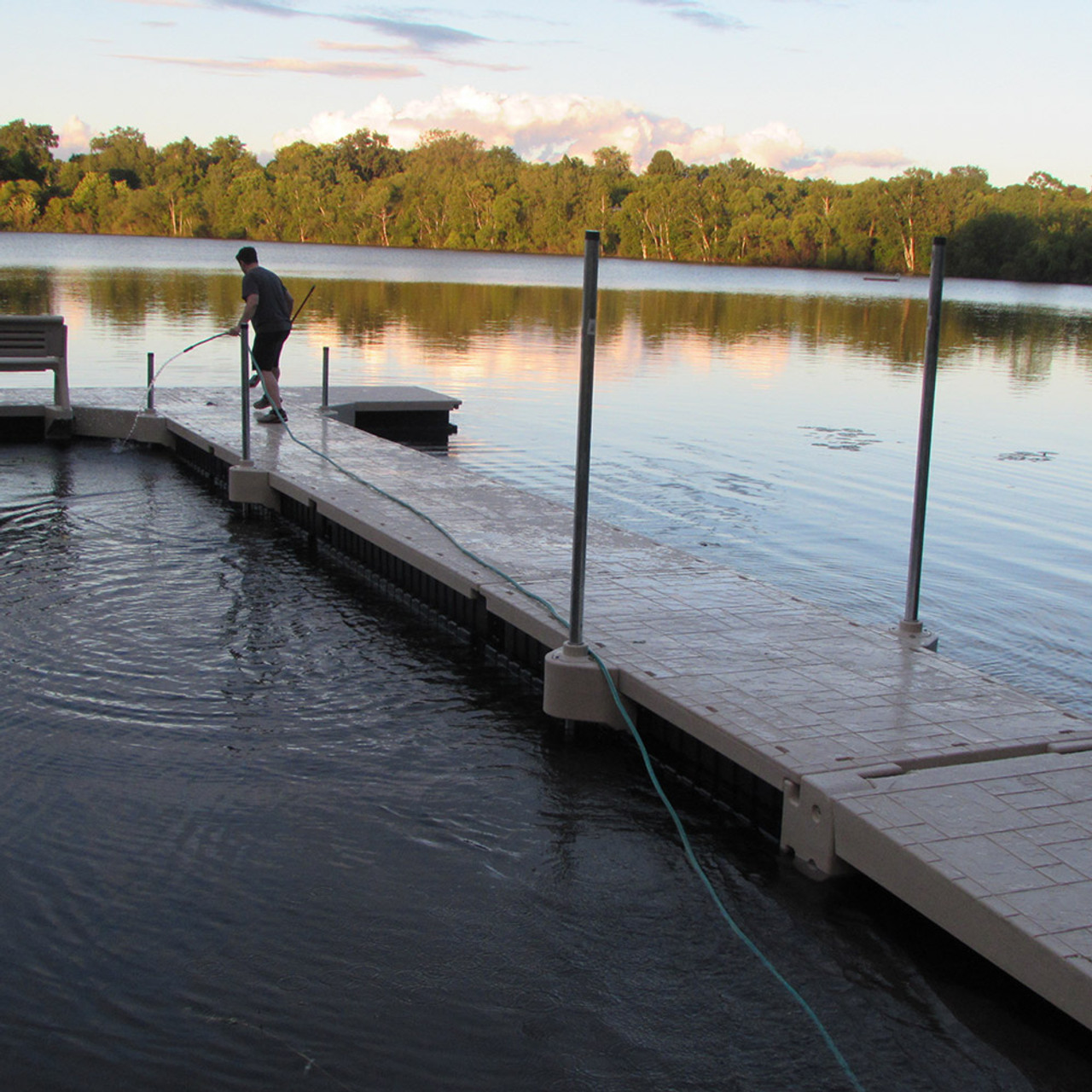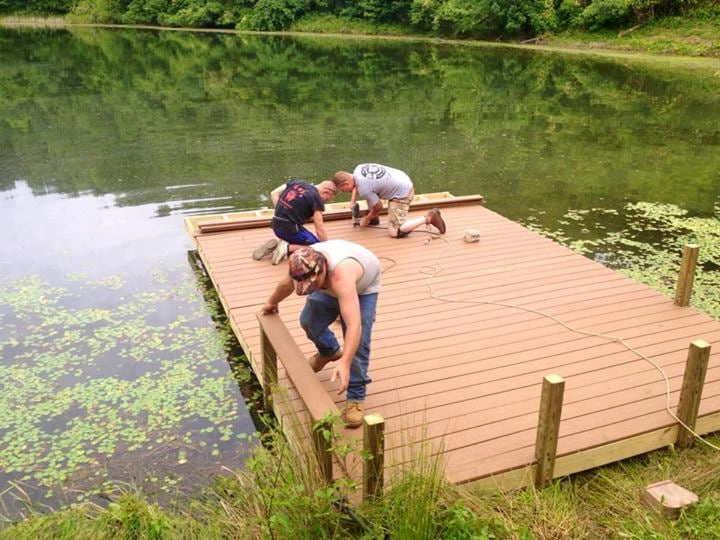Crafting Customized Solutions: Why a Floating Dock Builder is Essential for Distinct Needs
Crafting Customized Solutions: Why a Floating Dock Builder is Essential for Distinct Needs
Blog Article
Floating Docks: The Perfect Choice for Versatile Water Gain Access To
Floating docks present a compelling solution for a selection of water accessibility needs, providing flexibility that goes beyond typical mooring alternatives. The modular nature of floating docks promotes customization, providing to certain demands.
Benefits of Floating Docks
Floating docks offer countless advantages that enhance water access for numerous applications. Their capability to rise and drop with changing water levels makes them specifically helpful in settings with fluctuating tides or seasonal variants. This versatility guarantees that vessels can conveniently tie without concern for the water's depth, providing a dependable platform for entertainment, commercial, and industrial usages.
In addition, floating docks are frequently constructed from resilient products that withstand rust, making them appropriate for lasting usage in aquatic environments. Their installation is commonly less invasive than typical fixed docks, lowering the ecological influence and assisting in quicker deployment (dock company). This flexibility enables much easier moving or reconfiguration according to customer requirements or ecological adjustments
Safety and security is one more essential benefit; floating docks can offer secure accessibility for individuals boarding or getting off from watercrafts and reduce the threat of mishaps related to unpredictable surface areas. In addition, they can be made to suit a variety of devices, such as cleats and fenders, improving capability. On the whole, floating docks stand for a reliable remedy for boosting water accessibility across diverse markets while promoting safety and ecological sustainability.

Kinds Of Floating Docks
Numerous sorts of floating docks satisfy various demands and atmospheres, each created with certain functions to optimize capability. One of the most typical types consist of modular docks, which consist of interlacing sections that permit for easy personalization and expansion. These docks are optimal for entertainment use, as they can be tailored to fit different boat sizes and water problems.
One more prominent choice is the fixed floating dock, which stays anchored in place yet drifts with transforming water levels. floating dock company. This kind is particularly fit for locations with minimal tidal fluctuations, supplying stable gain access to for fishing or swimming. Furthermore, there are drive-on docks, which include a sloped style that allows boats to easily drive on and off, making them ideal for individual watercraft and smaller vessels
For industrial applications, heavy-duty floating docks are readily available, constructed from reinforced products to endure substantial tons and rough aquatic atmospheres. Last but not least, green floating docks make use of lasting products and designs to lessen ecological effect, usually incorporating attributes like greenery to support local wildlife. Understanding the different sorts of floating docks ensures that users can select the most suitable service for their details demands.
Installment Process Overview
An effective installment of floating docks calls for cautious planning and attention to detail to guarantee ideal performance and security. The first step involves assessing the site conditions, including water depth, current, and prospective challenges. This analysis notifies the option of the ideal dock materials and layout customized to the particular atmosphere.
Next, obtaining essential permits is essential, as lots of territories have regulations pertaining to building and construction on water bodies. The installation can proceed when approvals are click over here secured. Begin by preparing the structure, which may include anchoring systems or pilings tailored to the dock type and regional problems.
Following the foundation setup, set up the dock sections according to producer requirements. Make certain that all parts are firmly attached and straightened to hold up against environmental stress and anxieties. Position the dock in the designated location, ensuring it is level and secure.

Maintenance Tips and Best Practices
After the installment process is full, ongoing upkeep plays a vital duty in ensuring the long life and performance of floating docks. Regular inspections must be conducted to recognize any indicators of wear and tear, damages, or wear - floating docks. Look for any type of loosened fittings, cracks, or splitting up in the dock areas, as these can jeopardize structural integrity
Cleaning up the dock is necessary to remove debris, algae, and various other accumulation that can affect its appearance and safety and security. Use a mild pressure laundry occasionally to maintain sanitation without creating damages to the surface. Furthermore, using a protective sealer every few years can aid enhance durability and stand up to environmental wear.
Pay attention to the mooring lines and anchors, guaranteeing they are safe and secure and totally free from rust. Replace any type of abject elements promptly to prevent threats. Seasonal adjustments may also be essential; during severe climate condition, enhancing the dock or repositioning can prevent damage.
Applications for Floating Docks
Floating docks offer a wide variety of applications, dealing with both industrial and leisure requirements. In entertainment settings, they give smooth check this site out accessibility to waterways for activities such as boating, angling, and swimming. Their adjustable nature permits installation in varying water levels, guaranteeing secure and secure gain access to no matter tidal variations.
Commercially, floating docks are crucial for marinas and beachfront organizations. They promote the docking of vessels, making it possible for efficient discharging and packing of goods. Their modular layout enables very easy development or reconfiguration to accommodate transforming business needs, making them suitable for watercraft leasings, scenic tour procedures, or fishing charters.
In addition, floating docks are used in ecological applications such as water study and habitat remediation. They can offer as platforms for scientific research studies, keeping an eye on water top quality, or conducting wildlife surveys without troubling delicate ecosystems.
In commercial contexts, floating docks are used in building and construction projects, supplying access to hard-to-reach locations for equipment and workers. Their flexibility, durability, and minimal influence on the setting make them an optimum selection for a wide variety of applications, enhancing both capability and ease of access in numerous water-based environments.
Conclusion
To conclude, floating docks stand for an optimum solution for diverse water access requires, owing to their versatility, longevity, and modular layout. These structures facilitate secure mooring for various applications while decreasing ecological influence throughout installment. The minimized upkeep requirements even more enhance their usefulness. Thus, floating docks act as a useful asset for leisure, business, and ecological projects, making sure reputable access to rivers and promoting lasting methods in aquatic settings.
Floating docks existing an engaging service for a selection of water access requires, providing convenience that goes beyond conventional mooring options.Floating docks deal numerous advantages that improve water accessibility for numerous applications. Overall, floating docks represent an effective service for enhancing water gain access to throughout diverse industries while promoting safety and ecological sustainability.
An additional preferred choice is the stationary floating dock, which remains anchored in place but drifts with transforming water levels.In conclusion, floating docks stand for an optimum option for link diverse water access requires, owing to their versatility, durability, and modular layout.
Report this page